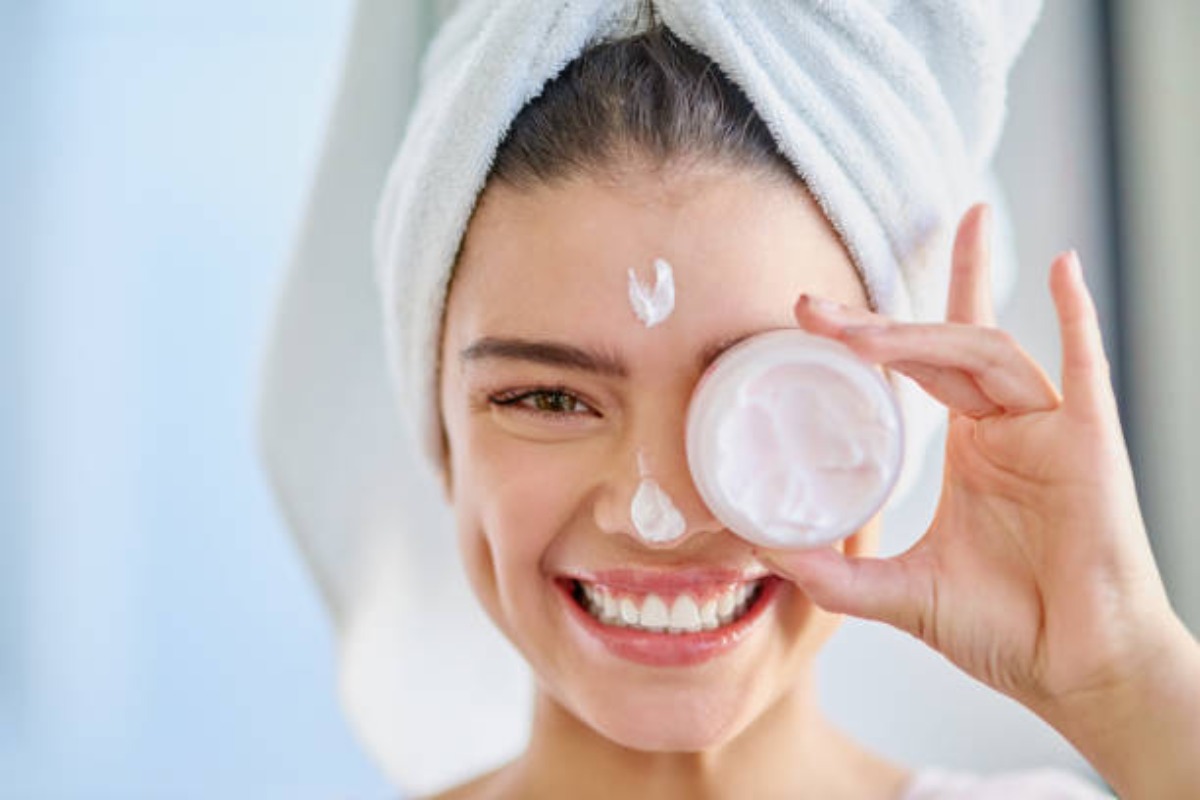Skin Hydrated – Do you notice your skin appears dry and feels dry or tight? It could be a sign of dehydration.
As you apply your creams or serums and other products for your skin, hydrating it from within is crucial to ensuring it stays hydrated.
This article will show you how to moisturize your skin and reap the benefits. Learn more
Table of Contents
What exactly is Hydrated Skin?
It’s common to imagine water whenever you hear the term “hydration.” The process of hydrating your skin involves increasing the amount of water in your skin. If your skin isn’t hydrated, it may appear dry, flaky, and dull.
Moisturized skin is soft, radiant, and evenly toned. To attain this, you have to replenish your skin’s thirst now and then.
However, many people mistake dry skin for flaky skin. While they are often used interchangeably, however, there is a fundamental distinction between them.
What causes dry skin?
1. Extreme Temperatures
Extremely cold or hot temperatures can harm the skin’s natural barrier. Although it may be difficult to stay clear of extreme temperatures, you should try to limit the amount of exposure you are exposed to.
2. Over Exfoliation
Exfoliating excessively could damage your skin’s natural barrier to moisture. It could be even more harmful when you use harsh, rough-textured products for cleansing your face.
3. Aggressive Cleansers
Products for skin care that contain caustic or harmful ingredients may harm the skin’s ability to retain moisture.
4. Air Conditioning
The lower humidity caused by air conditioning units could affect the health of your skin. The absence of humidity can damage the barrier to the moisture of the skin, making it dry.
5. Hydration vs. Moisturization
It contains ingredients that hold water in order to moisturize your skin with the addition of water. Hydration and moisturization are inextricably linked.
If you apply water to the skin area, you could appear plump for a short time. But the water will be released from your skin when there’s no way to keep it.
Moisturization includes the addition of ingredients to help retain moisture and strengthen the skin’s barrier. This stops the loss of water, enhances the texture of your skin, and improves its health.
How to Rehydrate Your Skin: 10 Steps
1. Drink a sufficient amount of water.
The first step to moisturizing your skin is to hydrate your body. It is recommended that you drink at least 8 glasses of water per day. Your body might require more, based on your activities of the day and your weight.
2. Make use of hydrating skincare products.
Creams based on water are suggested for those with dry skin. Creams that penetrate the skin and supply water are essential if you suffer from dry skin.
3. Beware of very hot and long showers.
Bathing for long periods of time, contrary to popular belief, can damage your skin’s barrier. It can result in an increase in moisture content and the essential oils that dry out your skin. A bathing session with lukewarm water is the best option.
4. Relax yourself with a face mask or sheet.
Face masks are loaded with moisture-boosting ingredients. The inclusion of a face mask that is hydrating into your routine for daily skin care can keep your skin looking smooth and hydrated. It also helps lessen the appearance of wrinkles or dark spots.
5. Make Use Of A Humidifier
A humidifier can be utilized to help when the moisture content of your air isn’t as high. This is especially beneficial in the winter when the weather is dry.
6. Sunscreen is a must.
Apply a broad-spectrum sunblock to protect your skin from UVA and UVB skin damage each time you leave for the sun during the day. The sun’s rays can dry out the skin, causing it to lose its moisture and break down collagen and elastin, both of which are the main reasons for its toughness and elasticity. It can lead to early signs of the aging process.
7. Eat Water-Rich Foods
Fruits and vegetables aren’t just hydrating; they are also beneficial to your skin in other ways. Fruits with citrus-based ingredients like lemons and oranges are brimming with juice and high in Vitamin C, which is essential to maintaining the texture of your skin. Foods that are rich in vitamins A, B3, and C are also crucial for improving the overall health of your skin.
8. Caffeine consumption should be reduced.
Alcohol and caffeine can reduce the amount of water on your skin, which can cause dryness and tightness. Limit your alcohol and caffeine intake to 2 cups of coffee or one glass of red wine in order to reduce their effects on your skin.
9. Make sure to exfoliate regularly.
The importance of exfoliating your skin is to rid it of dead skin cells, dry patches, etc. caused by the absence of moisture. It is recommended to exfoliate at least once a day for 4 to 5 days. Be careful not to do excessive exfoliation, which can damage the natural skin barrier and cause loss of moisture.
10. Moisturize
In summer, the body can lose lots of water, so drinking water all over is essential. Apart from eating foods that are water-rich and drinking plenty of water, ensure that you cleanse, tone, and moisturize regularly at night before you go to bed. Milk and honey are excellent natural moisturizers, so you should incorporate them into your skincare routine.
Which is the most effective moisturizer for you?
Select the right moisturizer based on the type of your skin. Cream-based moisturizers are ideal for dry, irritated skin. If you suffer from oily skin, A light moisturizer based on this natural lotion bar, it can help keep your skin from feeling heavy.
Use a barrier-repairing moisturizer since it gets into the layers beneath your skin to restore it from within and prevent it from becoming dehydrated.

